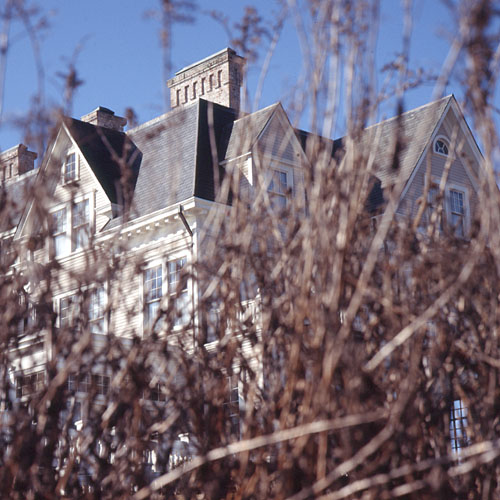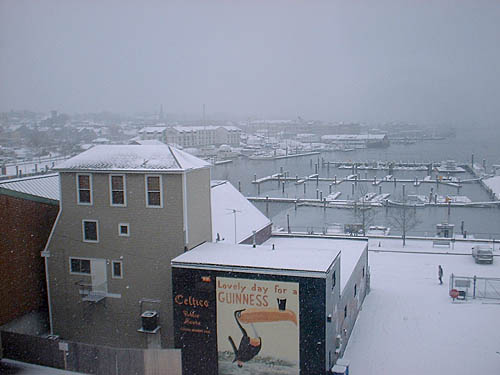I’m still visiting Newport R.I. where it seems like things are on hold. The lawns are mostly brown, the trees largely bare. Some evergreens seem like they’re waiting, like they’ve been waiting. A few rhododendrons or azaleas probably could be spectacular, but they’re not going to fulfill that promise anytime soon. It’s winter.

On the plane here I was reading the introduction to a scholarly edition of the Sukateiki, the Japanese eleventh-century gardening treatise that’s possibly the oldest book on gardening in existence in any language. In a chapter on geomancy, the authors discuss how the five geomantic elements–wood, fire, earth, metal, water–correspond to the seasons. Metal is autumn, water is winter, wood is spring, fire is summer, and earth the season that follows, doyo (pretend that there’s a macron–a long line–over the concluding “o”). So…five elements, five seasons? That got me thinking.
I spent some of my childhood in Burma, a tropical country with weather and seasons governed by the monsoons off the Indian Ocean. (An aside: To see what you can do to stay informed on the awful political mess there, as well as what you can do to help, click here.) There we had a cold dry season, then a hot dry season, followed by the rainy season. Three seasons. When my mother would talk about life in Ohio, with its four seasons, with its seasons of cold and snow, it all seemed awfully exotic and incomprehensible.
Now, living in Southern California, it’s impossible not to run into someone nostalgic for what they call four real seasons. Except for the occasional deciduous tree things stay pretty green. Things bloom in January. So some complain that it’s really just one very long season. Of course, anyone who’s lived there a while can feel the changes: You really shouldn’t plant lettuce in July, just as you’d probably not want to leave your doors and windows open most days in January. Every place has its cycles, only some are more subtle than others. Or do some people never go out of their houses?
And here in Newport, with the bare trees, the brown lawns, and–just overnight–a covering of fresh snow, there’s no doubt. It’s winter.

